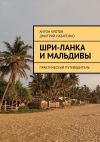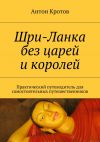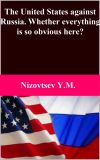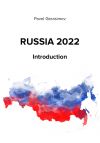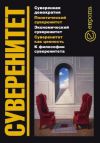
Автор книги: Коллектив авторов
Жанр: Прочая образовательная литература, Наука и Образование
Возрастные ограничения: +16
сообщить о неприемлемом содержимом
Текущая страница: 10 (всего у книги 33 страниц) [доступный отрывок для чтения: 11 страниц]
Antyushina N. M. Arctic: new format of International Cooperation. Reports of the Institute of Europe of the Russian Academy of Sciences, № 37, Moscow, 2014. (in Russian)
Antyushina N. M. Expansion of the Arctic Club is a new trend. International Economics, 2014, no. 9б, pp. 65–78. (in Russian)
Konovalova Yu. A. Indian interests in the Arctic region. World Economy. Series 1. Economics and law, 2014, no. 4, pp. 145–151. (in Russian)
Lunev S. I. India rushed to the Arctic // Arctic region. Problems of International cooperation. In three volumes. Russian international Affairs Council. Under the General editorship of I. S. Ivanov. M., Aspect Press, 2013. Vol. 1. P. 243–249. (in Russian)
International conference of representatives of the Arctic Council member States, Observer States and Foreign Scientific Community “Ensuring the security and sustainable development of the Arctic region, preserving ecosystems and the traditional way of life of the indigenous population of the Arctic”. Arkhangelsk. 16.09.2015. Moscow, 2015. P. 90–91. (in Russian)
Podoplekin A. O. O. The Arctic as an object of geopolitical interests of non-Arctic countries. Bulletin of the Northern (Arctic) Federal University. Series: Humanities and social Sciences, 2011, no. 2. S. 40–45. (in Russian)
Sentyurin Yu. RF i Indija budut iskat’ uglevodorody v Arktike. 4 nojabrja 2014 g. // Novosti promyshlennosti, Arktika, uglevodorody. Rezhim dostupa: URL: http://promyshlennosts.ru/novosti-promyshlennosti/rf-i-indiya-budut-iskatuglevodorody-v-arktike.html. (in Russian)
Observer countries in the Arctic Council: position and motives of activity. Moscow: ANO Center for strategic assessments and forecasts, 2014. S. 18–24. (in Russian)
Sergey Tamilin. This hot topic of the Arctic. India’s involvement in the development of the ice continent confirms its global ambitions // Review Day of the Republic of India. Appendix No. 13. 27.01.2020. P. 4. (in Russian)
Alexander Shimberg. Why Does India Need the Arctic? // Regnum. URL: https:// regnum.ru/ society/ 2278644.html. New Delhi, May 23, 2017. (in Russian)
Sinha U. K. India in the Arctic: A multidisciplinary approach / Bulletin of Saint Petersburg University. International relations. Volume 12, Issue 1. 2019, March. S. 113–126. (in Russian)
Zhuravel V. P., Shaumyan T. L. India and the Arctic: environment, economy and politics // Arctic and North, 2016, No 24. Р. 153–161. (in English)
SOFA and MCC with Sri Lanka: Discussions on the eve of Presidential elections in Sri Lanka – 2019
MICHAEL FERNANDO
BA (Ceylon), PhD (Berlin), Former Head of the Department of Fine Arts, University of Peradeniya, Sri Lanka, Former Editor-in-Chief of the News Paper ‘Atta’ (‘Truth’) of Communist Party of Sri Lanka
[email protected]
M. N. MOSEYKINA
PhD, DSc in History, Professor and Head of the Department of Russian History, RUDN University, Moscow, Russia
[email protected]
R. D. SENASINGHE
Post Graduate Student of the Department of Russian History, RUDN University, Moscow, Russia
[email protected]
Proposed security agreements between Sri Lanka and the United States of America became a prominent topic in the 2019 Sri Lankan Presidential election which was held on the 16th of November. This question has had a decisive influence on the present political dialogue of the country and in determining the future political direction of Sri Lanka. To be precise, Gotabhaya Rajapakse, the main candidate representing a section of the traditional left including the Communist Party of Sri Lanka and center parties such as the Sri Lanka Freedom Party which were closely associated with the non-aligned movement and previously friendly towards the Soviet Union, has been accused of being an American Citizen. However, this citizenship problem did not affect his candidacy as the US embassy in Sri Lanka kept silent on this matter. Sajith Premadasa, the other main candidate representing the bloc headed by the United National Party has ardently taken a traditional pro-American stance. Though anti-Americanism occupied a prominent place in Rajapakse’s election campaign at the beginning it was dropped later on. But due to Prime Minister Ranil Wickramasinghe’s declaration that the Millennium Challenge Corporation (MCC) agreement would be definitely signed by his government, the United States once again became a main target of Rajapakse’s camp, and fear of US interference has been instilled in Sri Lanka. They went even to the extent to declare their opposition to the MCC agreement and made use of this position to criticize the candidate of the United National Party. After the presidential election, the group led by Rajapakses seems to be faced by a dilemma as they want the money which come with the MCC agreement and also to show the people that they are against it. There seems to be a crisis within the alliance represented by the newly elected President Gotabhaya Rajapakse and the Prime Minister who is his elder brother Mahinda Rajapaksa. As described elsewhere in this paper they have appointed a four-man committee headed by prof. Lalithasiri Gunaruwan to examine whether this agreement contains any clauses which go against the interests of Sri Lanka. At the same time a section of the people including the National Peoples’ Power (NPP) which contested the presidential election putting forward the leader of the Peoples Liberation Front (JVP) Anura Kumara Dissanayake as their candidate at the 2019 presidential election has started a campaign against the policy of the Government. While speaking against it at many fora such as TV discussions and social media the JVP has already written to the president asking not to sign the MCC agreement and to follow their pre-election policy which was against it. It seems that the newly appointed president and his followers are trying to find and excuse to justify ACSA and SOFA agreements and to sign MCC agreement with the US.
Keywords: Sri Lanka, global politics in South Asia, US bilateral defense agreements, Chinese Silk Route project, relations between small and large countries, Status of forces agreement, Acquisition and Cross-Servicing Agreement, Millennium Challenge Corporation.
SOFA И MCC СО ШРИ-ЛАНКОЙ: ДИСКУССИИ НАКАНУНЕ ПРЕЗИДЕНТСКИХ ВЫБОРОВ В ШРИ-ЛАНКЕ – 2019
МАЙКЛ ФЕРНАНДО
BA (Цейлон), PhD (Берлин), бывший заведующий кафедрой изящных искусств, Университет Перадения, Шри-Ланка, бывший главный редактор газеты «Atta» («Правда») Коммунистической партии Шри-Ланки
[email protected]
М. Н. МОСЕЙКИНА
доктор исторических наук, профессор, заведующий кафедрой истории России, РУДН, Москва, Россия
marina_[email protected]
Р. Д. СЕНАСИНГХЕ
аспирант кафедры истории России, РУДН, Москва, Россия
[email protected]
Рассматриваемые к подписанию соглашения о безопасности между Шри-Ланкой и США стали важной темой накануне президентских выборов в Шри-Ланке в ноябре 2019 г. и оказали решающее влияние на политический диалог в стране. Г. Раджапакса был главным кандидатом, поддержанным частью традиционных левых и центристских партий. С. Премадаса, его основной оппонент, представляющий блок прозападной ориентации, занял проамериканскую позицию. Антиамериканизм оказался в центре внимания ланкийских политиков после сделанного тогдашним премьер-министром Р. Викрамасингхом заявления об обязательном подписании соглашения с институтом Сотрудничества «Вызовы тысячелетия» (MCC), что стало одним из факторов поражения Пермадасы. Избранный президентом Раджапакса оказался в сложном положении выбора внешнеполитического курса страны. В этих условиях оппозиционная Национальная народная сила начала антиправительственную кампанию с требованием отказаться от подписания соглашения MCC и следовать своей предвыборной программе. В свою очередь, действующая власть пытается найти оправдания соглашений ACSA и SOFA и будет добиваться подписания соглашение MCC с США.
Ключевые слова: Шри-Ланка, глобальная политика в Южной Азии, двусторонние оборонные соглашения США, проект «Шелковый путь Китая», отношения между малыми и большими странами, соглашение о статусе сил, соглашение о приобретении и перекрестном обслуживании, корпорация «Вызовы тысячелетия».
IntroductionThe paper of Bruce Vaughn titled “Sri Lanka: Background and U.S. Relations” deals with US-Sri Lanka relations in various fields, paying considerable attention to the background of Human Rights and War Crimes in post-civil war Sri Lanka and examines the history of US-Sri Lanka relations, domestic politics, economy and US aids to Sri Lanka, specifically regarding the impact of USAID on the Sri Lankan agricultural sector8484
Vaughn Bruce. Sri Lanka: Background and U.S. Relations, Congressional Research Service, CRS Report for Congress Prepared for Members and Committees of Congress. September 4, 2013. Р. 1–14.
[Закрыть]. Paper of R. Chuck Mason titled “Status of Forces Agreement (SOFA): What is it, and how has it been utilized?”, provides a comprehensive and vivid description of categories of multilateral and bilateral agreements of USA with foreign countries, and on the status of US armed forces in the particular countries or organizations that are involved in such agreements. This article analyses the provisions and security arrangements of such agreements, describes the historical practices of bilateral SOFAs, and their statuses8585
Mason R. Chuck. “Status of Forces Agreement (SOFA): What Is It, and How Has It Been Utilized?”, Congressional Research Service, CRS Report for Congress Prepared for Members and Committees of Congress. March 15, 2012. Р. 1–30.
[Закрыть].
US Legislative Attorney R. Chuck Mason presents a detailed definition describing several aspects of the agreements categorized as SOFAs. According to him “SOFAs are multilateral or bilateral agreements that generally establish the framework under which U.S. military personnel operate in a foreign country and how its domestic laws of jurisdiction apply toward U.S. personnel in that country”8686
Ibid.
[Закрыть], especially relating to the matter of exercising criminal jurisdiction over U.S. personnel. He further comments that formal requirements concerning form, content, length, or title of a SOFA do not exist. SOFAs may be signed for a specific purpose or activity, or for a longer-term relationship, and provide for maximum flexibility and applicability. Other provisions provided for the U.S.A. are the wearing of uniforms, taxes and fees, carrying of weapons, use of radio frequencies, licenses and customs regulations. As described by Mason, a SOFA is not a defense or security agreement in itself, but it establishes the rights and privileges of U.S. personnel present in a country in support of a larger security arrangement. Furthermore, “SOFAs may be entered based on authority found in previous treaties and congressional actions or as sole executive agreements”8787
Ibid.
[Закрыть]. SOFAs are drafted by The US Departments of State and of Defense and may consist of 1-200 pages. United States have signed more than 100 such agreements considered as SOFAs with foreign states such as NATO member countries, NATO PfP member countries, and other countries.
Sri Lanka apparently became the first among South Asian nations that singed a SOFA agreement with the USA as far as in 1995. This followed the declaration of war by the LTTE, the Tamil separatist armed organization, on the 19th of May 1995. The LTTE was declared as a terrorist organization the by USA in 1997. It was during the tenure of President Chandrika Bandaranaike Kumaratunga, leader of the Sri Lanka Freedom Party which was inclined to a social democratic orientation. Diplomatic relations between Ceylon and the socialist countries were established in the late 1950s since the said party came to power in 1956, whereby Ceylon gained considerable economic assistance from the socialist countries. A few examples are the Metallurgical plant in Oruwala, Tyre producing factory in Kelaniya, Flour milling plant in Modara, Sugar producing plant in Kanthale and many others.
Other South Asian nations that entered into such agreements with USA are Bangladesh in 1998, relating to the status of U.S. forces visiting Bangladesh, Nepal in 2000, in pursuit of the temporary stay of US military personnel in the Kingdom of Nepal necessitated by the Multi-Platoon Training Event and Afghanistan in 2002, relating to cooperative efforts in repulsing terrorism as well as providing humanitarian and civic assistance, military training and exercises, and other activities. Though India does not have a publicly acknowledged SOFA agreement with the United States, both countries engage in bilateral training exercises, despite India having close ties with Russia in the field of defense and military cooperation.
Purpose of the 1995 SOFA with Sri Lanka was to facilitate US military personnel, including advisors visiting Sri Lanka for exercises or other duties designed to primarily providing training and logistical assistance, solely at Sri Lanka’s invitation. This agreement was strengthened with another one signed in 2007. As reported in the ‘Sunday Times’ of 13th October 2019, military relations between the United States and Sri Lanka comparative grew closer since the return of Gotabaya Rajapaksa (an American citizen and US-trained infantry officer) to Sri Lanka in December 2005 to be the Secretary of Defense, than during the tenure of President Chandrika Kumaratunge. According to diplomatic cables reviewed by the Sunday Observer, Robert O. Blake, the former US Ambassador in Colombo said that Rajapaksa would cite “strong personal connections between the United States and his country’s leadership”, in bilateral talks an allusion to the fact that his as well as two of his brothers’ families were US citizens and residents”8888
Borham M., Vipulasena A. Inside the “secret” American defense agreements // Sunday Observer, July 14, 2019. Р. 28.
[Закрыть]. As authors of this article further described, US-Sri Lanka relations strengthened during the tenure of President Mahinda Rajapaksa, culminating with the signing of the ‘Acquisition and Cross-Servicing Agreement’ (ACSA). It was signed by Gotabhaya Rajapaksa as Sri Lanka’s Defense Secretary and Robert O. Blake, then US Ambassador in Colombo. In other words, the agreement was signed between two American citizens, as acknowledged by President Mahinda Rajapaksa, elder brother of Gotabhaya. Moreover, the US had been lobbying the Sri Lankan government to sign the said ACSA agreement since 2002, as per US diplomatic cables reviewed by the Sunday Observer8989
Ibid.
[Закрыть]. Nonetheless, the successive governments of Prime Minister Ranil Wickremesinghe, leader of the Pro-American United National Party and of President Chandrika Kumaratunge declined from reaching consensus on it for five years. However, the aforesaid article described it as follows: “‘On January 27, 2007, a leaked cable gloats, ‘Secretary Rajapaksa stated that he was ready to sign the agreement at any time convenient to the US’”9090
Ibid.
[Закрыть]. That was the conduct of the Rajapaksa family and so it was signed without approval from his cabinet nor from parliament.
History of having defense agreements with European nations, especially with Great Britain, goes back to pre– and early post-independence era of Ceylon. European nations value the strategic importance of Ceylonese ports for international trade. Hence it was important for Ceylon to strengthen its sovereignty in the precincts of a powerful neighbor such as India. Thus, Ceylon entered into defense agreements with Great Britain relating to Trincomalee harbor in the east of the island and Katunayake airbase in the west during the aforesaid period9191
Gunasekara Sandya Nishanthi. Bandwagoning, Balancing and Small States: A Case of Sri Lanka // Asian Social Science. 2015. P. 212–220.
[Закрыть]. Great Britain was a major investor of Ceylon’s economy at that time and these economic relations have continued thus far, with UK becoming the second biggest export market for Ceylonese products such as cinnamon, tea, rubber, fisheries products and textiles as at 20099292
Kandaudahewa H. Sri Lanka in Commonwealth: UK – Sri Lanka Political and Economic Relations. Proceedings of 8th International Research Conference, KDU, Sri Lanka, November 2015. P. 54–59.
[Закрыть]. European Union (before Brexit) also became one of the main export markets for Sri Lanka in the last few decades due to the GSP concession granted by the EU. Approximately one third of Sri Lanka’s exports are to the EU. They also provide loans for investment projects in Sri Lanka. Similarly, EU is conscious of Sri Lankan efforts in such as areas as protection of human rights as well as individual rights. The USA is in agreement with the European people in these respects.
The establishment of diplomatic relations between China and Ceylon in 1957 also caused the development of trade and commerce. Mutual relations between the two countries initially strengthened with the Sino-Lanka rubber-rice agreement signed in 1952. Since then China has assisted Sri Lanka in every way: from the provision of vessels for the maintenance of its maritime power, as well as providing of naval training and military equipment. The importance of the Indian Ocean is highlighted by the fact that the world’s major trade routes and fuel and crude oil transportation seas are in it. Thus, the Indian Ocean is of utmost importance to many countries including China. Meanwhile, China is also sponsoring a number of major investment projects in Sri Lanka such as highways, ports, airports, the Norochcholai power plant and the Port City (A total investment of US $ 1.34 billion from China). This is a precursor to Sri Lanka becoming an important stop-over in the Chinese Silk Route project. It is also important herein to note that the Hambantota Port in the South of Sri Lanka is leased to China. China’s strategic objectives include the controlling of Colombo’s naval power through the Port City and directing shipping. Nonetheless, the Chinese Ambassador Cheng Xueyuan addressing a meeting on last 29th of October stated that, whilst Sri Lanka’s present debt stands at Rs. 56 billion, it owes China only Rs. 6 billion or approx. 11.5% of it. Hence, the story that Sri Lanka is entangled in a Chinese debt trap is wear false propaganda.
Sri Lanka is a much better place than the US base on Diego Garcia Island for a military base and for military maneuvers. Not surprisingly, some refer to Sri Lanka as the center of the world, or at least the center of the Indian Ocean. Mangala Samaraweera, Sri Lankan Foreign Minister once branded Sri Lanka as ‘the Hub of the Indian Ocean’ recently9393
Samaraweera M. Sri Lanka’s Peace and Reconciliation Process. January 13, 2017. URL: https://www.news.lk/fetures/item/15646-sri-lanka-s-peace-and-reconciliationprocess (date of access: 17.10.2019).
[Закрыть]. Meanwhile, strategic planners, officials and intellectuals clarified this stance as follows: “Sri Lanka aims to forge a dual identity; as the center of the Indian Ocean and an economic entry point to the Indian sub-continent”9494
Panditaratne D. Re-Energising the SAARC Process”, Lakshman Kadirgamar Institute. August 21, 2017. URL: http://www.lki.lk/events/lkis-dinusha-panditaratne-speaks-reenergising-saarc-process// (date of access).
[Закрыть]. Dr. Saman Kelegama also sees Sri Lanka as “strategically located in Asia, next to the Indian subcontinent and in close proximity to Southeast Asia, and that its existence is coupled with a long history of engagements in the region, Sri Lanka is in an ideal position to foster strong relations with rising Asia”9595
Kelegama S. China-Sri Lanka Economic Relations: An Overview, China Report Volume: 50 issue: 2, Sage Publication, May 1, 2014. P. 131–149.
[Закрыть]. The question is whether this will be used for future purposes, and if so, by which country. China’s strategic aim may be to use Sri Lanka as a geopolitical tool against US regional interests. Moreover, China seems to count Sri Lanka as a more easily utilizable ground in dealing with Taiwan and India.
Sri Lanka is closely aligned with India through SAARC agreements such as the South Asian Preferential Trading Arrangement, the South Asian Free Trade Agreement and the Indo-Sri Lanka Free Trade Agreement, the strongest in the South Asian region. India observes everything in Sri Lanka with great caution and is expected to protest the leasing the Trincomalee port. This was a condition of the Indo-Lanka Accord of 1997. However, India and the United States are currently undergoing a tough economic tug of war over trade. At the moment, the balance of trade between the two countries is US $ 1 billion. So, if the US plans to lease the Trincomalee port, India will have little choice except to oppose it. On the other hand, Sri Lanka is important to India, since it is a significant market for them. India has also traditionally provided loans to Sri Lanka for some of its development projects. In addition, Indian specialists made adequate and pragmatic calculations on Sri Lanka’s importance for India and other parts of the world. R. Hariharan, a retired Indian army colonel and specialist in South Asian geopolitics told CNBC that “Sri Lanka lies just a few nautical miles away from the major east-west shipping route, through which an estimated 60,000 ships pass every year, carrying two-thirds of the world’s oil and half of all container shipments. Sri Lanka is the pivotal point for a global grand strategy”9696
Bhatia G. China, India tussle for influence as Sri Lanka seeks investment, CNBC, April 24, 2016. URL: http://www.cnbc.com/2016/04/24/global-opportunities-china-india-tussle-forinfluence-as-sri-lanka-develops.html. (date of access: 15.10.2019).
[Закрыть]. Gauri Bhatia stressed that “Sri Lanka’s geography gives it an advantage disproportionate to its size”9797
Ibid.
[Закрыть]. Prof. Polly Diven of Grand Valley State University Grand Rapids, Michigan USA says that, despite the support expended by India to the separatist movement in Sri Lanka in the 1980s, India has given umpteen military assistance to the government of Sri Lanka, including radar, offshore patrol boats, and five Mi-15 helicopters used to defeat the LTTE at the final stage of the civil war in northern Sri Lanka. J. R. Jayewardene, the then President of Sri Lanka also received military assistance from many countries including Britain, China, Pakistan, and Israel9898
Brewster D. Sri Lanka Tilts Back from China”, East Asia Forum, September 17, 2015. Pp. 69–81.
[Закрыть] in the 1980s.
According to CIA reports, “Sri Lanka’s economy now relies mainly on the services sector and has a thriving tourism market. It additionally relies on agriculture and, to a lesser extent, industry, the largest exports being garments, tea, spices, rubber, gems and jewelry, refined petroleum, fish, and coconut products. Nearly 20% of the nation’s exports reach the United States and the other large trading partners include India and several European Union nations”9999
Sri Lanka, The World Factbook, Central Intelligence Agency, 2013.
[Закрыть].
It is important to note that the US could influence Sri Lanka in many ways. The government of Sri Lanka may have to agree to any proposal that would allow foreign currency to flow into Sri Lanka if it is pushed to the point where it cannot afford to repay its debts. This is a good way for the US to influence Sri Lanka into signing a SOFA-type agreement. It is possible that Sri Lanka will now have a new agreement that surpasses the previous one signed with Gotabhaya Rajapaksa. Pro-American government of Ranil Wickramasinghe has made some initiatives to sign such an agreement, but President Maithripala Sirisena was not responsive to these moves. Considering this background, it is not difficult to see that despite the ongoing political battle for power between the two sides, there is no real program but just anti or pro-American grand-standing. Ultimately, the two standing parties will be forced to sign such an agreement with US, after the elections.
The two main Presidential candidates have not expressed their views on the subject matter thus far. While it is obvious that Gotabhaya Rajapakse’s citizenship is in dispute, he is unable to say anything about it. Moreover, he is the one who signed and expanded the 1995 agreement as well.
It is noteworthy that President Maithripala Sirisena, the former leader of the Sri Lanka Freedom Party (SLFP), traditionally loyal to the Soviet Union, has not signed the imposition of this power-seeking agreement, despite the United National Party (UNP), the main US ally in Sri Lanka, being in the government as its major partner.
On the other hand, the US Embassy has not yet responded to enquiries made from then regarding the question of Gotabhaya’s citizenship. Alaina B. Teplitz, the US Ambassador in Colombo said it was a personal matter. The 19th Amendment of the Sri Lankan Constitution does not allow a dual citizen to become president.
Anura Kumara Dissanayake, Presidential candidate and leader of the leftist People’s Liberation Front as well as other left oriented candidates contesting for the Presidency strongly condemn these agreements. Nevertheless, the Peoples Liberation Front has also mentioned that it is not opposed to any such agreements, as long as they are not harmful to the independence of Sri Lanka.
Meanwhile, Nagananda Kodituwakku, who was preparing for the Presidential race at the outset, stated that these agreements would threaten the sovereignty of Sri Lanka. However, he did not seek nomination for the election.
The US Embassy has stated in an interview with the Lankadeepa newspaper that the Government of Sri Lanka has approved the Acquisition and Cross-Servicing Agreement in 2017. This agreement generally used by the NATO countries and the US, and covers common types of support including food, fuel, transportation, ammunition and equipment. The Ambassador also stated that it will allow troops of both countries access to each other’s goods and services. However, it is obvious that American troops will be at an advantage in such an agreement. The Ambassador stated that the proposed SOFA agreements are still in talks. The Millennium Challenge Corporation is also planned to launch its own development program. They also plan a grant for the development of Sri Lankan infrastructure including its road network. The grant is a tool to pressure Sri Lankan authorities toward signing these agreements.
Meanwhile the UNP government announced on the 29th of October that it would sign the MСC grant agreement with the US at an early date, meaning before the Presidential elections, irrespective of the wishes of the President. Thus, the opposition suspect that the government has surreptitiously concluded a military co-operation agreement as well. It is evident that the UNP has indicated to the US government that not only influence, Gotabhaya Rajapakse, but they too can take bold decisions, and thereby will seek American support for its candidate, Sajith Premadasa in the coming Presidential elections. Meanwhile, the Sunday Observer which captions this as ‘Sri Lanka’s largest ever development grant’ revealed that the initial discussions in pursuit of this issue was held during the, 2nd term of Mahinada Rajapakse’s tenure. It was also mentioned that Sirisena Amarasekara, Secretary of former Premier D. M. Jayaratna went to Washington for talks on this matter.
However, a significant event took place in Sri Lanka’s political arena recently regarding the agreement. A Buddhist monk, who subsequently died, had demanded the withdrawal of this agreement in a letter, which had given to Sajith Premadasa, the UNP Presidential candidate. Among the things mentioned in the said letter was the fact that he would not cause to sign this agreement without presenting it into Parliament as well as informing the general public regarding it. Gotabhaya Rajapakse however has not expressed any views on this matter.
Deepthi Kumara Gunaratna, an independent political commentator mentioned that whichever party wining the elections has to consent to this agreement.
Правообладателям!
Данное произведение размещено по согласованию с ООО "ЛитРес" (20% исходного текста). Если размещение книги нарушает чьи-либо права, то сообщите об этом.Читателям!
Оплатили, но не знаете что делать дальше?